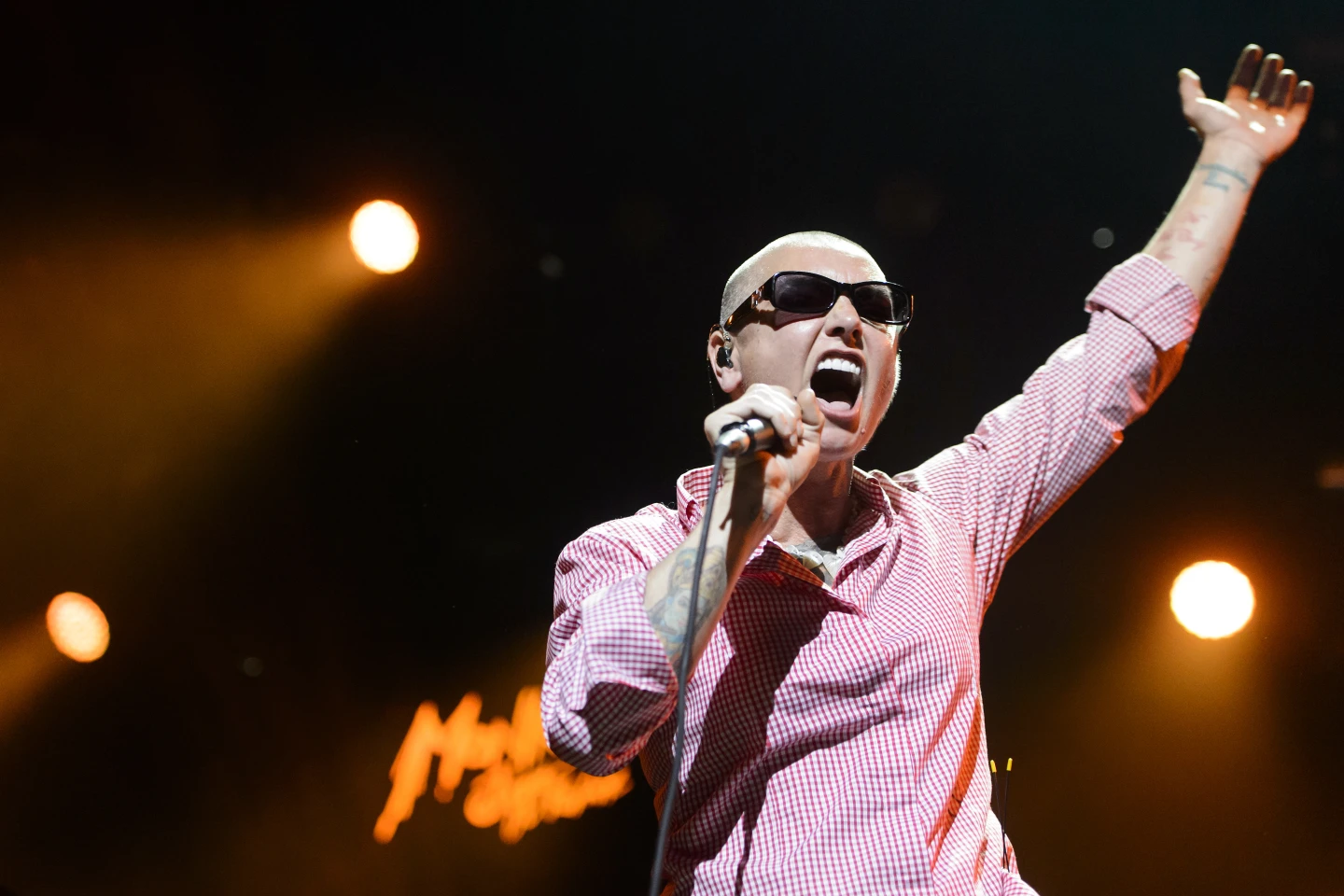Sinéad O’Connor, gifted and provocative Irish singer, dies at 56

LONDON (AP) — Sinéad O’Connor, the gifted Irish singer-songwriter who became a superstar in her mid-20s but was known as much for her private struggles and provocative actions as for her fierce and expressive music, has died at 56.
“It is with great sadness that we announce the passing of our beloved Sinéad. Her family and friends are devastated and have requested privacy at this very difficult time,” the singer’s family said in a statement reported Wednesday by the BBC and RTE. No cause was disclosed.
She was public about her mental illness, saying that she was diagnosed with bipolar disorder. O’Connor posted a Facebook video in 2017 from a New Jersey motel where she had been living, saying that she was staying alive for the sake of others and that if it were up to her, she’d be “gone.” When her teenage son Shane died by suicide in 2022, O’Connor tweeted there was “no point living without him” and was soon hospitalized.
Recognizable by her shaved head and elfin features, O’Connor began her career singing on the streets of Dublin and soon rose to international fame. She was a star from her 1987 debut album “The Lion and the Cobra” and became a sensation in 1990 with her cover of Prince’s ballad “Nothing Compares 2 U,” a seething, shattering performance that topped charts from Europe to Australia and was heightened by a promotional video featuring the gray-eyed O’Connor in intense close-up.
She was a lifelong non-conformist — she would say that she shaved her head in response to record executives pressuring her to be conventionally glamorous — but her political and cultural stances and troubled private life often overshadowed her music.
A critic of the Catholic Church well before allegations sexual abuse were widely reported, O’Connor made headlines in October 1992 when she tore up a photo of Pope John Paul II while appearing live on NBC’s “Saturday Night Live” and denounced the church as the enemy. The next week, Joe Pesci hosted “Saturday Night Live,” held up a repaired photo of the Pope and said that if he had been on the show with O’Connor he “would have gave her such a smack.” Days later, she appeared at an all-star tribute for Bob Dylan at Madison Square Garden and was immediately booed. She was supposed to sing Dylan’s “I Believe in You,” but switched to an a cappella version of Bob Marley’s “War,” which she had sung on “Saturday Night Live.”
Although consoled and encouraged on stage by her friend Kris Kristofferson, she left and broke down, and her performance was kept off the concert CD. (Years later, Kristofferson recorded “Sister Sinead,” for which he wrote “And maybe she’s crazy and maybe she ain’t/But so was Picasso and so were the saints.”)
She also feuded with Frank Sinatra over her refusal to allow the playing of “The Star-Spangled Banner” at one of her shows and accused Prince of physically threatening her. In 1989 she declared her support for the Irish Republican Army, a statement she retracted a year later. Around the same time, she skipped the Grammy ceremony, saying it was too commercialized.